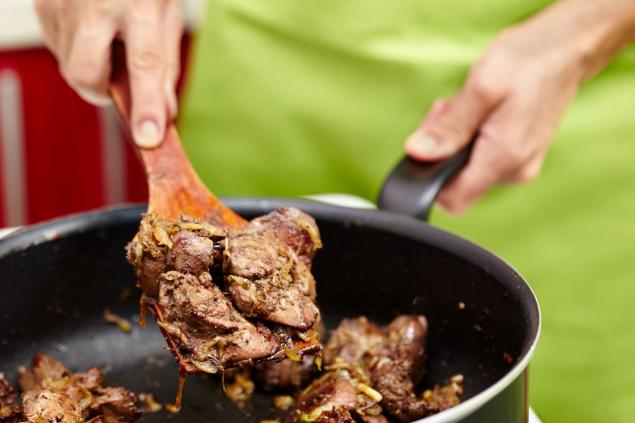139
I asked the guests what they did not like our home borscht
Why do you need to talk about your feelings, and not accumulate anger? We think that nothing better sheds light on this question than a life story about how a hidden resentment upset relatives from the Petrov family. So without further ado, let’s move on to the story.
Recently in our family there was a joyful event – a son was born. As the time came, all relatives were called to the christening, and a grand celebration was arranged. After the christening, my husband’s brother and wife stayed with us. We always got along well, so we were happy to host guests.

On the eve of their arrival, my mother and I prepared a bunch of food to respect our relatives. But they refused to dine with us, only drank tea and left. Later it turned out that instead of eating at our place, the guests decided to do it at the nearest diner.

I was very saddened by this news. The next day, I decided to call my daughter-in-law and find out what was going on. She replied, They just didn’t want to eat us. I was very surprised by her words, but this answer reassured me a little.

But a week after this incident, my husband accidentally mentioned that in fact his brother’s wife held a grudge against me, and therefore on the day of the christening refused to eat at our place.

The fact is that when I met, when my husband and I were visiting his brother, I also tried not to eat much. At that time, I had to follow a special diet to keep myself in shape. And my brother's wife cooked too fatty food.

Of course, I did not criticize their food. Just said she wasn't hungry. I had no idea it would hurt the owner so much! I don't understand why it wasn't for me to tell you this in person and sort out the situation peacefully. Have we been on knives since then? I thought we were doing great! It’s a shame that people can be so hypocritical. All the time to smile at the meeting, and behind the eyes to judge and cherish long-standing grievances.

How do you think this conflict could be resolved? Who should be the first to take the path of reconciliation? We would be very grateful if you would share your thoughts on this in the comments!
Recently in our family there was a joyful event – a son was born. As the time came, all relatives were called to the christening, and a grand celebration was arranged. After the christening, my husband’s brother and wife stayed with us. We always got along well, so we were happy to host guests.

On the eve of their arrival, my mother and I prepared a bunch of food to respect our relatives. But they refused to dine with us, only drank tea and left. Later it turned out that instead of eating at our place, the guests decided to do it at the nearest diner.

I was very saddened by this news. The next day, I decided to call my daughter-in-law and find out what was going on. She replied, They just didn’t want to eat us. I was very surprised by her words, but this answer reassured me a little.

But a week after this incident, my husband accidentally mentioned that in fact his brother’s wife held a grudge against me, and therefore on the day of the christening refused to eat at our place.

The fact is that when I met, when my husband and I were visiting his brother, I also tried not to eat much. At that time, I had to follow a special diet to keep myself in shape. And my brother's wife cooked too fatty food.

Of course, I did not criticize their food. Just said she wasn't hungry. I had no idea it would hurt the owner so much! I don't understand why it wasn't for me to tell you this in person and sort out the situation peacefully. Have we been on knives since then? I thought we were doing great! It’s a shame that people can be so hypocritical. All the time to smile at the meeting, and behind the eyes to judge and cherish long-standing grievances.

How do you think this conflict could be resolved? Who should be the first to take the path of reconciliation? We would be very grateful if you would share your thoughts on this in the comments!
Should you let your mother-in-law host your dacha?
The priest explains why talkative language does not bring good
























